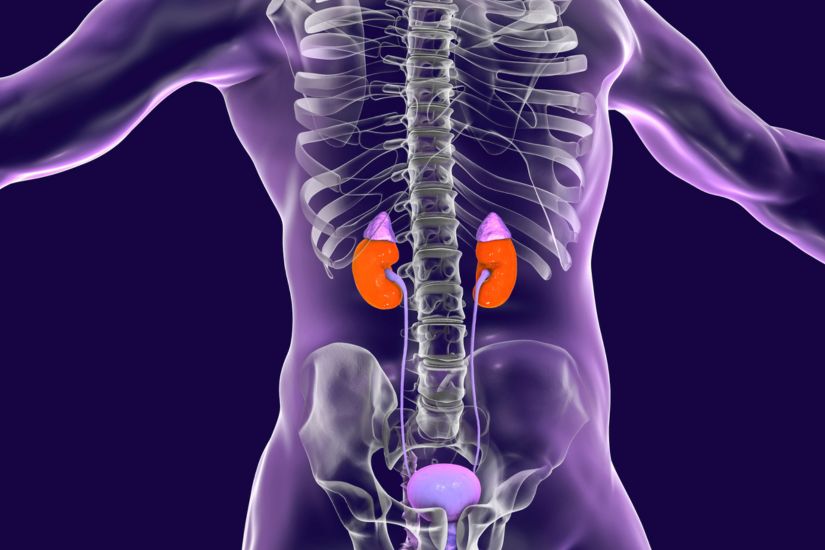 The endocrine system plays a pivotal role in regulating many of the body’s essential functions, including fertility. This intricate network of glands and hormones is responsible for coordinating everything from growth and metabolism to reproductive processes. Understanding how the endocrine system impacts fertility is crucial for anyone looking to conceive or manage reproductive health issues. This blog explores the key components of the endocrine system that influence fertility and offers insights into maintaining hormonal balance.
The endocrine system plays a pivotal role in regulating many of the body’s essential functions, including fertility. This intricate network of glands and hormones is responsible for coordinating everything from growth and metabolism to reproductive processes. Understanding how the endocrine system impacts fertility is crucial for anyone looking to conceive or manage reproductive health issues. This blog explores the key components of the endocrine system that influence fertility and offers insights into maintaining hormonal balance.
Key Hormones and Their Roles in Fertility

The endocrine system secretes hormones directly into the bloodstream, influencing various bodily functions. Several hormones are particularly important for reproductive health:
Gonadotropin-Releasing Hormone (GnRH)
GnRH is released by the hypothalamus and is critical for initiating the secretion of other hormones that regulate reproductive functions in both men and women.
Follicle-Stimulating Hormone (FSH) and Luteinizing Hormone (LH)
Both FSH and LH are produced by the pituitary gland. FSH is essential for sperm production in men and stimulates the ovaries to produce eggs in women. LH triggers ovulation and stimulates the production of other hormones necessary for pregnancy.
Estrogen and Progesterone
These hormones are crucial in regulating the menstrual cycle and preparing the female body for pregnancy. Estrogen helps regulate the growth and development of female sexual characteristics and reproductive organs. Progesterone prepares the uterus for pregnancy after ovulation by thickening the lining, which is vital for implantation of the embryo.
Testosterone
In men, testosterone produced by the testes supports the production of sperm. It’s also present in women in smaller amounts, where it plays a role in the ovarian function and bone strength.
Factors Affecting the Endocrine System and Fertility

Several factors can disrupt the normal functioning of the endocrine system, impacting fertility:
Lifestyle Factors
Poor diet, lack of exercise, and stress can all affect hormone levels. Maintaining a balanced lifestyle helps support the endocrine system in regulating reproductive hormones efficiently.
Environmental Influences
Exposure to certain chemicals and toxins, such as pesticides and plasticizers, can interfere with hormone functions, a phenomenon known as endocrine disruption.
Health Conditions
Conditions like polycystic ovary syndrome (PCOS), thyroid disorders, and adrenal gland dysfunction can directly impact fertility by disrupting the endocrine system.
Supporting Your Endocrine System for Improved Fertility
Here are several ways to support your endocrine health and, by extension, your fertility:
Maintain a Balanced Diet

Eating a diet rich in fruits, vegetables, whole grains, and lean proteins can help maintain hormone balance. Include foods that are high in vitamins D and B12, selenium, and omega-3 fatty acids, which are particularly beneficial for hormone health.
Regular Physical Activity
Exercise can help to regulate hormones and reduce stress levels. Aim for a mix of cardiovascular exercise, strength training, and flexibility exercises like yoga, which can be particularly beneficial for stress reduction and hormonal balance.
Manage Stress
Chronic stress can significantly affect the endocrine system. Techniques such as meditation, deep breathing, and mindfulness can help manage stress and maintain hormonal balance.
Regular Health Check-ups
Regular check-ups can help identify and manage any issues with your endocrine system before they impact your fertility. If you have concerns about your reproductive health, we provide pre-pregnancy check ups.
Knapp Chiropractic is here for your fertility journey
The endocrine system’s role in fertility is complex and influential. By understanding how this system works and taking steps to support its function, you can improve your chances of maintaining healthy fertility. At Knapp Chiropractic, we are committed to helping you understand and optimize your reproductive health through comprehensive care and support. Contact us today so we can help you with your endocrine health!
